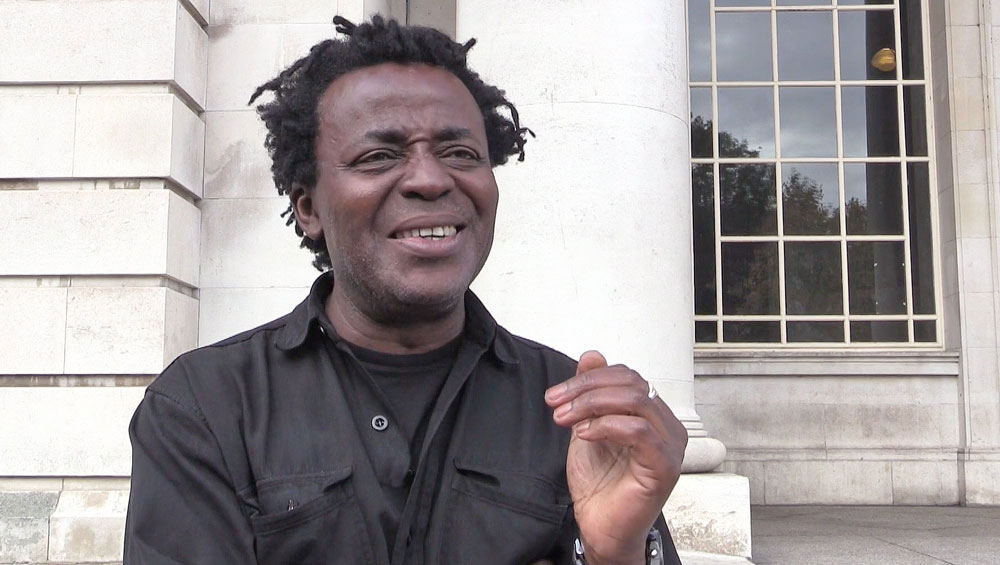03/11/16
Interview: John Akomfrah
Artes Mundi 7
National Museum Cardiff
21/10/16 – 26/02/17
For the past three decades, Ghanaian-born British
director, writer and theorist John Akomfrah has been highlighting the legacy of
African diaspora in Europe by creating films that explore marginalised
histories of European society. Having looked a lot at causality, he now feels
drawn to shift his gaze to simultaneity, and his new split-screen film work,
Auto da Fé, on show as part of the Artes Mundi 7 exhibition in Cardiff, looks
at displacement as a result of religious persecution and what it’s like to live
life with the precarity of not being able to take even simple things for
granted.
In 2009, during a visit to Barbados, Akomfrah stumbled
on a Sephardic Jewish cemetery. Not having known that such a community existed,
he wanted to find out more. Auto da Fé refers to the Latin American variant of
the Inquisition, resulting when Jews were kicked out, en masse, from Queen Isabella
I’s Spain and Portugal in the 15th century. Akomfrah’s film, however, highlights
the similarities between what happened then and what continues to happen across
the globe today.

In the past, Akomfrah has described his films as “tone
poems”. He explains what he meant by this and also reflects on the influence of
Andrei Tarkovsky.
Akomfrah was a founding member of the Black Audio Film Collective, which
was active between 1982 and1998. In 2008, he was awarded an OBE for his
services to the British film industry.
Akomfrah spoke to
Studio International at the opening of Artes Mundi 7 in Cardiff.
Watch this interview here